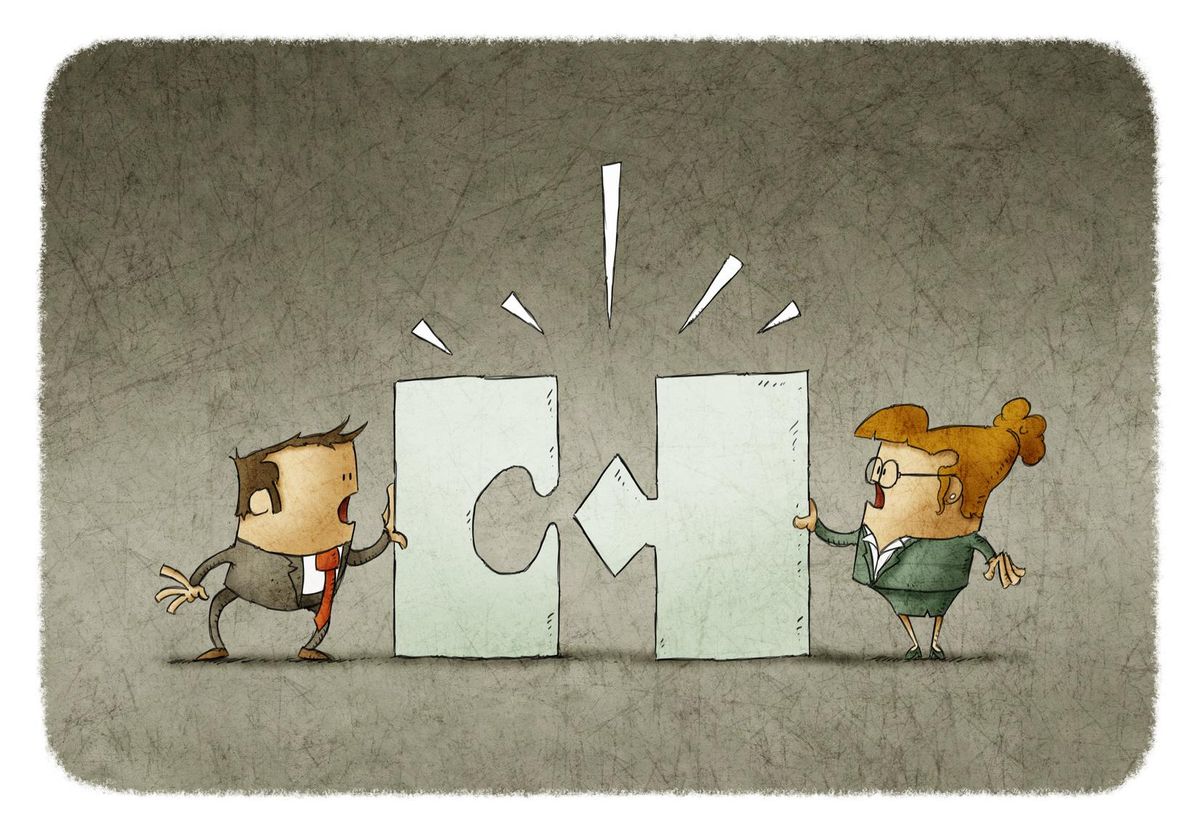
Enterprise Sales: The Perils of Selling to the Wrong Customer
On the surface, closing a deal with a customer who isn’t a good fit for your company doesn’t seem like that big of a problem. After all, you've ended up with some added revenue, and your customer is getting something to help him with his problem, even if it isn’t the ideal solution for his particular needs.
However, when you really dig in and closely examine what happens in these circumstances, it becomes clear that selling to the wrong customers can have wide-ranging consequences, both for them and for your own organization.
Failing to provide value to your customer
We might as well start with the big one. If you’re selling to customers who aren’t a good match for your product, you’re violating the most important rule of sales: You aren’t providing real value to your customers. A successful sales effort is not making money off of a customer and counting your revenue while they struggle with a product that doesn’t fit their needs. True success in sales can only occur when the needs of the customer and the value proposition of the organization are in alignment, and when both parties benefit from the relationship.
Some salespeople are loathe to leave potential deals on the table, but it’s better for them, the customer, and the company if they honestly assess whether their solution is a good fit for the client operationally and financially. You may be able to close sales without doing this, but you’ll never be in a position to develop long-term, consistent customer relationships.
Missing out on repeat customer revenue
Let’s say, hypothetically, that there is a salesperson who doesn't care about providing value to her customers. She brags about how she doesn't need repeat customers because she closes more new deals than anyone in her department and consistently beats their quotas, despite the fact that her customers will never purchase from your company again.
The statistics paint an unequivocal picture of how badly this so-called sales professional is hurting your company. Not only do most studies indicate that it costs anywhere from five to ten times as much to close with a new customer than it does to generate additional revenue from an existing one, but your existing customers spend, on average, two-thirds more on each transaction.
Not taking advantage of the benefits of advocacy
Many times, when you have truly satisfied customers who intrinsically understand the value that your product provides for them and their companies, something magical happens. The benefits for you and your organization don’t just stop at additional revenue and a commission. You have the opportunity to turn these customers into genuine advocates for your brand, opening the path to numerous new opportunities in the future.
Advocates can be a great source for internal and external referrals, and they can also help you generate earned media mentions and powerful word-of-mouth.
Generating unsustainable churn rates
Every B2B company is going to experience some customer churn, but the problem is going to be markedly worse for companies that continually attempt to sell to the wrong customers. Almost every startup has certain customer loss expectations built into their assumptions throughout various periods of the organization’s infancy, but the leaders start to get very nervous if the actual churn rate is frequently higher than expected. Many experts agree that financial investors and board members of B2B startups are particularly concerned about churn rate early in a company’s development.
Handicapping the customer service and onboarding professionals
When a customer isn’t a good fit for your product, odds are that it’s going to be difficult for them and their colleagues to use it in an optimal way. The end result of such a scenario typically requires your company to spend more resources on customer onboarding procedures, resulting in a longer delay before they are actually able to go live with your product. Additionally, it’s likely that your customer service department will experience an increase in call volume from this customer, further impacting productivity levels across your company.
Killing the morale of the sales team
If your salespeople are routinely given leads that aren’t right for your company, it will eventually have a detrimental effect on their confidence and sense of team spirit. As they struggle to make connections with prospects, knowing that they aren't likely to be successful, they may start to feel as if their time and talents aren’t being respected in the organization. When it is not likely that they can leave a customer truly satisfied, they’ll end up being less motivated and engaged in the moment, which can then hurt their processes with other customers.



